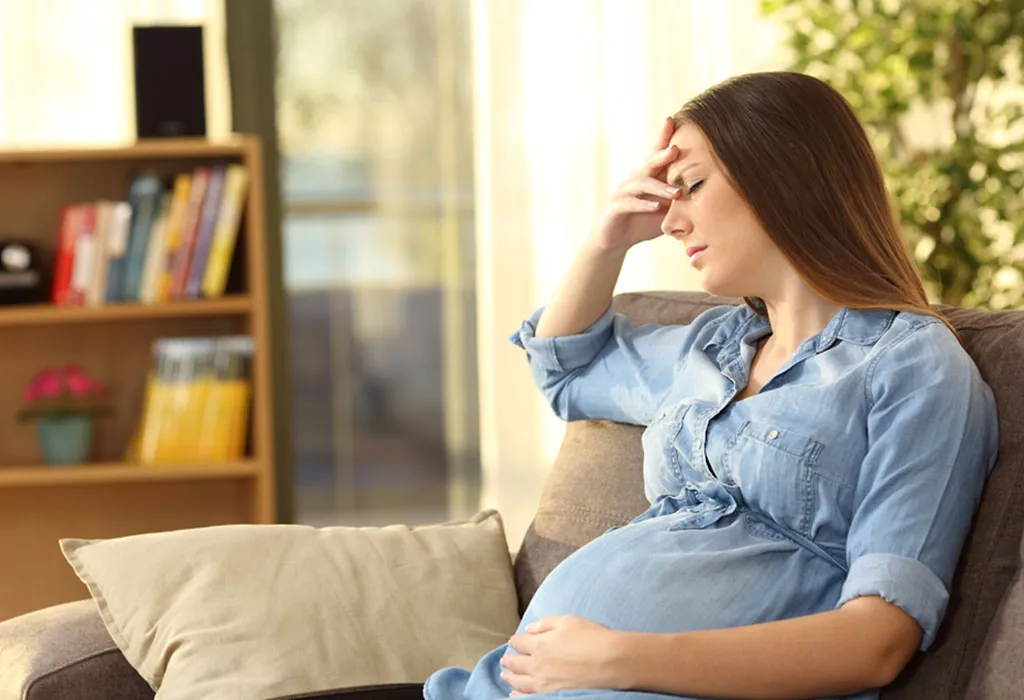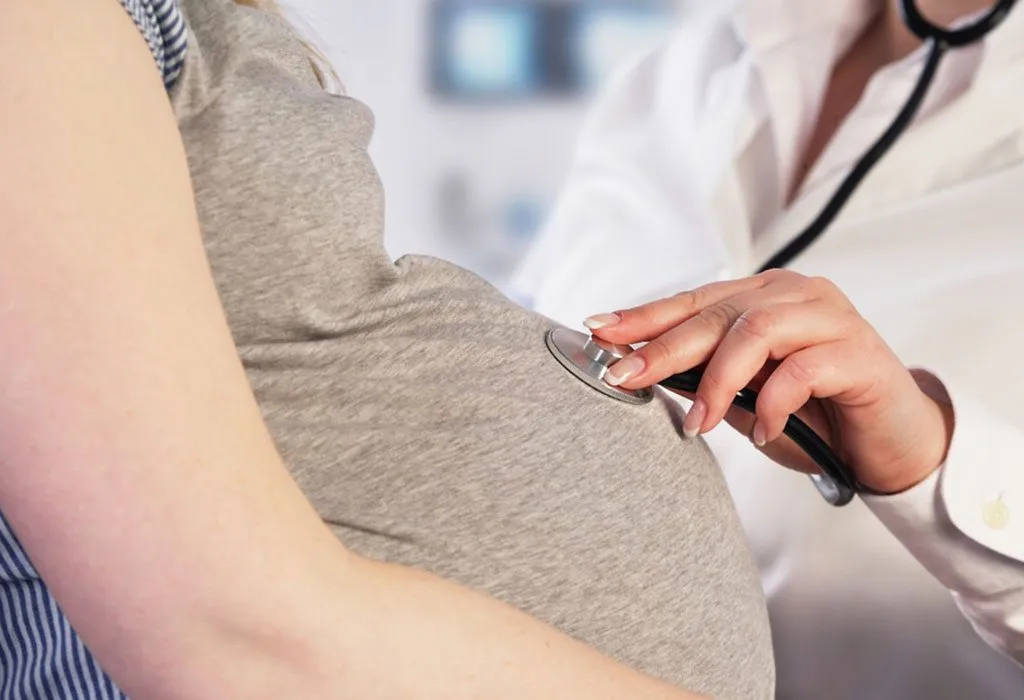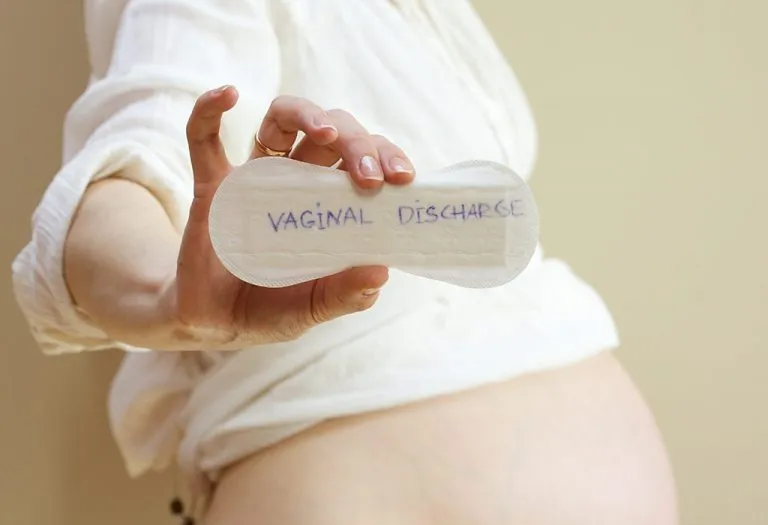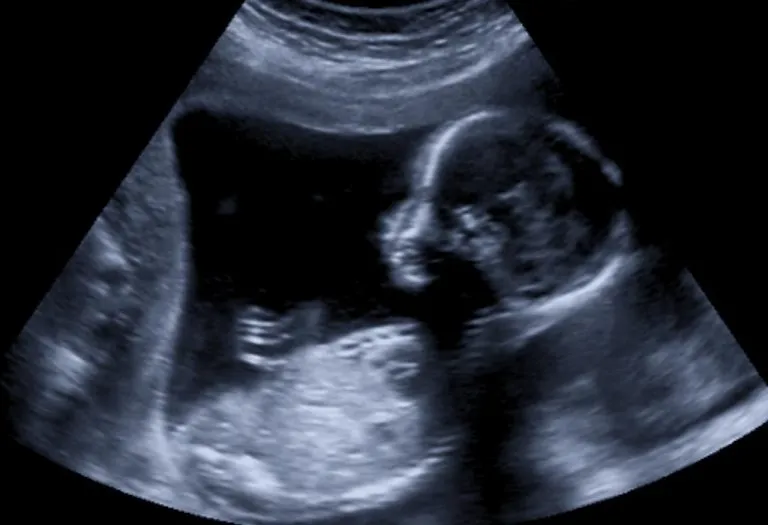High & Low Haemoglobin Levels During Pregnancy

- What Is Haemoglobin?
- Importance of Haemoglobin During Pregnancy
- Normal Range of Haemoglobin
- Why Do Haemoglobin Levels Drop During Pregnancy?
- Effects of Low Haemoglobin Levels
- Are You at Risk of Decreased Haemoglobin?
- How to Increase Haemoglobin When Pregnant?
- When Do Haemoglobin Levels Become High During Gestation?
- Effects of High Haemoglobin Levels
- Treating High Haemoglobin Levels
- When to Call the Doctor?
- FAQs
Anaemia, characterized by low levels of haemoglobin, affects approximately 20% of pregnant women globally. Anemia during pregnancy elevates the risks including heightened chances of maternal and perinatal mortality, premature delivery, and low birth weight. The implications of maternal anaemia extend beyond immediate health concerns, impacting the long-term well-being of both mother and child. Inadequate haemoglobin levels during pregnancy can lead to developmental challenges for the newborn and potentially compromise the mother’s health postpartum. As researchers delve deeper into the intricacies of maternal health, addressing and mitigating anaemia emerges as a crucial aspect of prenatal care, highlighting the need for comprehensive strategies to promote healthier outcomes for pregnant women and their infants.
What Is Haemoglobin?
Haemoglobin is a complex protein in the blood that helps transport oxygen and carbon dioxide to various parts of the body. Iron is the main component of red blood cells, hence the name haemoglobin – ‘haemo’ stands for iron and ‘globulin’ is the name of the protein. The haemoglobin level in women should range between 12 to 16g/dl.
Importance of Haemoglobin During Pregnancy
When a woman is pregnant, she needs more oxygen than normal as the foetus also needs oxygen. Hence, as soon as a woman is pregnant, her haemoglobin level is estimated – the oxygen-carrying capacity of the blood directly depends on the concentration of the circulating haemoglobin.
Normal Range of Haemoglobin
Haemoglobin is measured in g/dl (gram per decilitre). Here is the normal range of haemoglobin in adults.
- When not pregnant : 12 to 15.8 g/dl or 120 to 158 g/L
- 1st trimester of pregnancy : 11.6 to 13.9 g/dl or 116 to 139 g/L
- 2nd trimester of pregnancy : 9.7 to 14.8 g/dl or 97 to 148 g/L
- 3rd trimester of pregnancy : 9.5 to 15 g/dl or 95 to 150 g/L
Why Do Haemoglobin Levels Drop During Pregnancy?
During pregnancy, fluctuations in haemoglobin levels can occur due to various factors, impacting the health of both the expectant mother and the developing fetus. Understanding why haemoglobin levels may drop during this crucial period is essential for effective prenatal care.
1. Increased Blood Volume (Hemodilution)
One primary cause of decreased haemoglobin levels during pregnancy is the expansion of blood volume. As the body adapts to support the growing fetus, blood volume increases to ensure an adequate supply of nutrients and oxygen. This dilution effect can lead to lower concentrations of haemoglobin, contributing to anaemia.
2. Nutrient Deficiencies
Insufficient intake of essential nutrients, such as iron, folic acid, and vitamin B12, can contribute to low haemoglobin levels. These nutrients play a vital role in red blood cell production, and a deficiency during pregnancy can impede the body’s ability to maintain optimal haemoglobin levels.
3. Hormonal Changes
Pregnancy induces hormonal shifts that influence the production and breakdown of red blood cells. Changes in hormone levels, particularly erythropoietin and progesterone, can impact the body’s response to anaemia, potentially leading to a decrease in haemoglobin levels.
4. Placental Demands
The developing placenta requires a substantial blood supply to support the growing fetus. This increased demand for blood can contribute to a reduction in haemoglobin levels as the body redirects resources to meet the needs of the placenta and the developing baby.
Effects of Low Haemoglobin Levels
Haemoglobin levels below 10.5g/dl can have an impact on the health of the pregnant woman. Hence, it is important to take iron supplements during pregnancy as advised by the doctor. Here are a few side effects of low haemoglobin levels during pregnancy:
- You will feel exhausted
- Dizziness will become normal
- Your skin and lips will turn pale
- You will experience shortness of breath even while resting
- You will have increased heartbeats
- Your hands and feet will often be cold
- Your nails will become brittle and break easily

This condition can worsen with a further drop in haemoglobin. If the haemoglobin drops to 6g/dl, then the expecting mother may experience angina. In this condition, a pregnant woman will experience severe pain in the chest which slowly moves to arms, shoulders and neck due to the insufficient flow of blood to the heart.
Are You at Risk of Decreased Haemoglobin?
As mentioned earlier, a slight fall in haemoglobin during pregnancy is normal. But if you enter pregnancy at a stage where your haemoglobin is already below normal, then you may be at a higher risk of decreased haemoglobin during pregnancy. Some of the factors before pregnancy that may contribute to this state of low haemoglobin in a woman are:
- Losing large quantities of blood during periods, especially the last cycle before getting pregnant
- Being on a diet that is low in iron content
- Having donated blood just before pregnancy
- Failing to absorb iron properly
- Getting pregnant soon after your last delivery
There are 3 kinds of haemoglobin issues you might face during pregnancy:
- Iron-deficiency anaemia – this occurs when the body does not have enough iron to produce optimum haemoglobin.
- Folate-deficiency anaemia – The body needs folate to produce more RBCs, which help transport oxygen to the tissues of the body. Not eating enough green leafy veggies can cause folate-related issues with haemoglobin.
- Vitamin B12 deficiency – The body also needs enough vitamin B12 to form healthy red blood cells. Having a diet lacking in the vitamin can cause issues that directly affect haemoglobin levels.
How to Increase Haemoglobin When Pregnant?
Since we know that haemoglobin levels are most likely to go down during pregnancy, you must consult your doctor and take iron supplements. Also, a change in your diet may help you to replenish iron, folic acid, vitamin B12, and vitamin C, without which you could end up with a haemoglobin deficiency.
Here is a list of food items that can help you to fill the gap.
- You must include leafy vegetables like palak, methi, dry fruits, and foodgrains like barley, maize millet, and sesame seeds in your diet. These are reliable sources of iron.
- Fruits rich in iron, such as guava, kiwi, peaches, figs, apples, etc. are a must-have in your everyday diet.
- Food rich in vitamin C must be included in your diet as it helps the body absorb iron. Fruits like kiwi, orange, lime and raspberries are excellent sources of vitamin C. Dark leafy greens, bell peppers, broccoli and tomatoes are also rich in Vitamin C and must be included in your diet.
- Folic acid and vitamin B complex help in the production of red blood cells which, in turn, boost the level of haemoglobin the body. Therefore, food items rich in folic acid and vitamin B complex like avocado, okra, lettuce, turnip, sprouts, etc. should also be a part of your daily meals.
- It has been observed that excess intake of calcium, gluten, and caffeine can block the absorption of iron by the body. Hence, during pregnancy, one must limit the intake of:
- Coffee/tea
- Alcohol
- Pasta and wheat products (gluten)
- Parsley (oxalic acid)
- Milk products
When Do Haemoglobin Levels Become High During Gestation?
Haemoglobin levels during pregnancy may arise due to conditions related to the heart, lungs, and kidneys. Haemoglobin in a pregnant woman may also rise due to:
1. Dehydration
If there is a decrease in fluid or water intake during pregnancy, you may experience a sudden rise in haemoglobin. The same comes under control the moment your fluid intake increases.
2. Erythrocytosis
In this condition, a sudden rise is seen in red blood cells. During pregnancy, if, for some reason, the body fails to meet the oxygen demand of various tissues, there is an increase in the production of red blood cells. This obviously increases the haemoglobin levels in the body.
3. An Overdose of Iron Supplements
A rise in the iron level in the body results in a sudden increase in haemoglobin levels. Hence, do not take iron supplements without consulting your doctor.
4. High Altitude Exposure
Pregnant women residing in or traveling to high-altitude locations may experience an increase in haemoglobin levels. At higher elevations, there is reduced oxygen availability in the atmosphere, prompting the body to produce more red blood cells to compensate for the lower oxygen levels. This physiological response can lead to elevated haemoglobin levels during gestation.
5. Smoking During Pregnancy
Smoking tobacco during pregnancy is associated with various adverse effects, including a potential increase in haemoglobin levels. The toxins in cigarette smoke can lead to reduced oxygen supply to tissues, triggering the body to produce more red blood cells. This compensatory response can result in elevated haemoglobin levels and poses additional risks to both maternal and fetal health.
Effects of High Haemoglobin Levels
You may be surprised, but high haemoglobin levels during pregnancy can be quite dangerous. Here are some unwanted outcomes of high haemoglobin during pregnancy:
- It increases the chances of low birth weight or LBW
- During the 1st and 2nd trimester, it can result in foetal SGA (small for gestational age)
- If the haemoglobin level goes above 14g/dl during 2nd trimester, it may indicate preeclampsia
- Increase in the thickness of blood can directly affect the flow of blood in the body of the mother. As a result, the blood may not reach the placenta, and that will obviously hamper the healthy development of the baby.
Treating High Haemoglobin Levels
There is no prescribed home remedy for high levels of haemoglobin during pregnancy. This must be treated by an expert as and when they deem fit. You will be monitored closely by a specialist who will decide the treatment pattern based on your symptoms.
When to Call the Doctor?
Consider the following guidelines for consulting a doctor regarding haemoglobin levels during pregnancy:
1. Abnormal Test Results
In the case of abnormal results from routine blood tests showing low haemoglobin range in pregnancy, seeking guidance from a healthcare professional is crucial to determine the cause and appropriate treatment.
2. Routine Prenatal Care
It is advisable for pregnant women to undergo routine prenatal care and periodic blood tests to monitor haemoglobin levels throughout the pregnancy.
3. Anaemia Symptoms
If a pregnant woman encounters symptoms like fatigue, weakness, dizziness, or shortness of breath, consulting a doctor is essential, as these may indicate low haemoglobin levels.
4. Dietary Concerns
Pregnant women lacking a balanced diet or with specific dietary requirements should consult their doctor to ensure they receive the necessary nutrients for maintaining healthy haemoglobin levels.
5. Previous Anaemia History
Women with a prior history of anaemia or low haemoglobin in a previous pregnancy should communicate their concerns to their healthcare provider.
6. Underlying Medical Conditions
Pregnant individuals with pre-existing medical conditions such as sickle cell disease or thalassemia, which may lead to low haemoglobin levels, should consult their healthcare provider for proper management.
FAQs
1. Is low haemoglobin in pregnancy common?
Yes, low haemoglobin levels during pregnancy are relatively common. Approximately 20% of pregnant women worldwide experience anaemia or low haemoglobin levels, which can have various implications for maternal and fetal health.
2. Can high haemoglobin lead to miscarriage?
While high haemoglobin levels are not directly linked to miscarriage, they may indicate underlying health issues. It is crucial to identify and address the specific causes of elevated haemoglobin, such as dehydration, erythrocytosis, or smoking, to ensure a healthy pregnancy.
3. How much Hb is required for normal delivery?
The required normal Hb during pregnancy for a normal delivery can vary among individuals. Generally, a Hb level of 10 grams per deciliter (g/dL) or higher is considered adequate for a normal delivery. However, individual health conditions and circumstances may influence the optimal Hb level, and healthcare providers monitor and assess each case accordingly.
To enjoy your pregnancy to the fullest, keep a watch on what you eat, listen to your body and especially to your doctor. In case of the slightest doubt, consult your doctor immediately.
References/Resources:
1. How to Treat Iron Deficiency During Pregnancy; American Pregnancy Association; https://americanpregnancy.org/healthy-pregnancy/pregnancy-health-wellness/treat-iron-deficiency-naturally-pregnancy/
2. Working during pregnancy: Dos and don’ts; Mayo Clinic; https://www.mayoclinic.org/healthy-lifestyle/pregnancy-week-by-week/in-depth/pregnancy/art-20047441
3. FAQs: Nutrition During Pregnancy; The American College of Obstetricians and Gynecologists; https://www.acog.org/womens-health/faqs/nutrition-during-pregnancy
4. Mohamed. S, Alshaghdly. R; Next Pregnancy and Nutritional Challenges; International Journal of Science and Research; https://www.ijsr.net/archive/v5i3/NOV161665.pdf
5. Anemia; American Academy of Family Physicians; https://familydoctor.org/condition/anemia/
6. Johnson-Wimbley. T; Diagnosis and management of iron deficiency anemia in the 21st century (Therapeutic Advances in Gastroenterology); National Library of Medicine; https://www.ncbi.nlm.nih.gov/pmc/articles/PMC3105608/; May 2011
7. Anemia and Pregnancy; UCSF Health; https://www.ucsfhealth.org/education/anemia-and-pregnancy
Also Read:
FSH Levels while Pregnant
Low Lymphocytes in Pregnancy
Ways to Increase Haemoglobin levels during Pregnancy

















